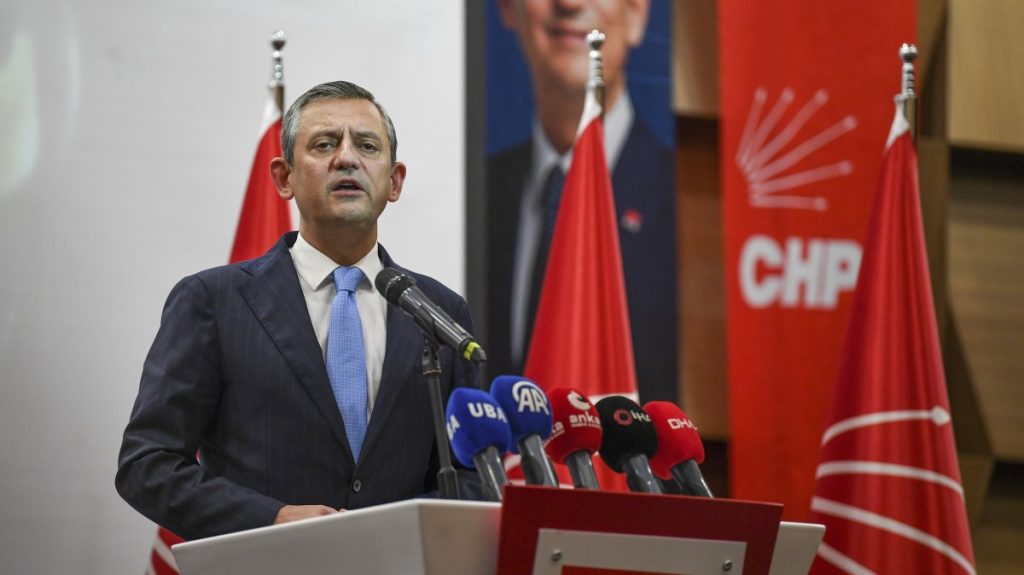With the fall of Bashar Assad’s regime following opposition forces seizing control of Damascus, Turkish officials have begun issuing statements emphasizing the need for peace, stability and democracy in Syria. Both the public and politicians across the spectrum are urging the establishment of a democratic system that upholds human rights and justice.
The leader of the main opposition Republican People’s Party (CHP), Özgür Özel, took to social media to address the developments, calling for a governance structure that represents all Syrians and is rooted in the rule of law.
“We call on all friends of Syria to ensure that the mistakes made in Iraq and Libya are not repeated. There must be a transitional government that represents all Syrians, followed by the establishment of a democratic regime based on human rights and the rule of law,” Özel wrote.
The CHP chairperson stated that his party “stands firmly for Syria’s territorial integrity and is committed to democracy, peace and stability in the region.”
The main opposition leader also pointed to the end of Assad’s authoritarian rule, which has defined Syria for years, saying, “Our priority regarding Syria remains the safety and well-being of our citizens. A comprehensive program should be immediately devised to facilitate the safe and voluntary return of Syrians who have been residing in Türkiye under various statuses for years.”
For years, Syria has been a recurring fault line in Turkish politics, sparking contentious debates between the CHP and the ruling government. The rift has encompassed critical issues such as severing ties with the Assad regime and, more recently, attempts to normalize relations. The CHP has persistently criticized the government’s approach to Syria.
Among the most heated points of criticism has been Ankara’s handling of Syrian refugees. Since the eruption of the Syrian civil war, Türkiye has hosted millions of Syrians fleeing violence, making it home to the world’s largest refugee population at its peak.
The war has been devastating, with hundreds of thousands of lives lost. Over half of Syria’s pre-war population of 23 million was displaced, either internally or as refugees abroad. A significant number crossed the border into Türkiye, seeking safety and stability.
Under the leadership of the Justice and Development Party (AK Party), the Turkish government opened its borders to those escaping the conflict, earning domestic praise for its humanitarian stance and sharp criticism from opposition parties, especially the CHP.
Critics argued that Türkiye was shouldering an unsustainable burden. Over the years, however, integration efforts were implemented. Many Syrians in Türkiye adapted to their host country, learning Turkish, enrolling their children in local schools and, in some cases, acquiring Turkish citizenship. Despite these efforts, most Syrian refugees remained close to the border, driven by the hope of one day returning home.
In recent years, discussions around refugee repatriation have intensified. The Turkish government has promoted the concept of an “honorable return,” implementing programs to facilitate voluntary returns to Syria.
As stability begins to take shape in some regions of Syria, particularly following the Assad regime’s fall, plans for broader repatriation have gained momentum. Reports and images of Syrians at border crossings ready to return have revealed this shift.
Globally, the international community has also taken notice of this transition, as millions of displaced Syrians consider going back to rebuild their lives. Within Türkiye, these developments have brought renewed attention to its role in addressing the human toll of the Syrian conflict, as well as the political and social challenges of hosting such a large refugee population.


